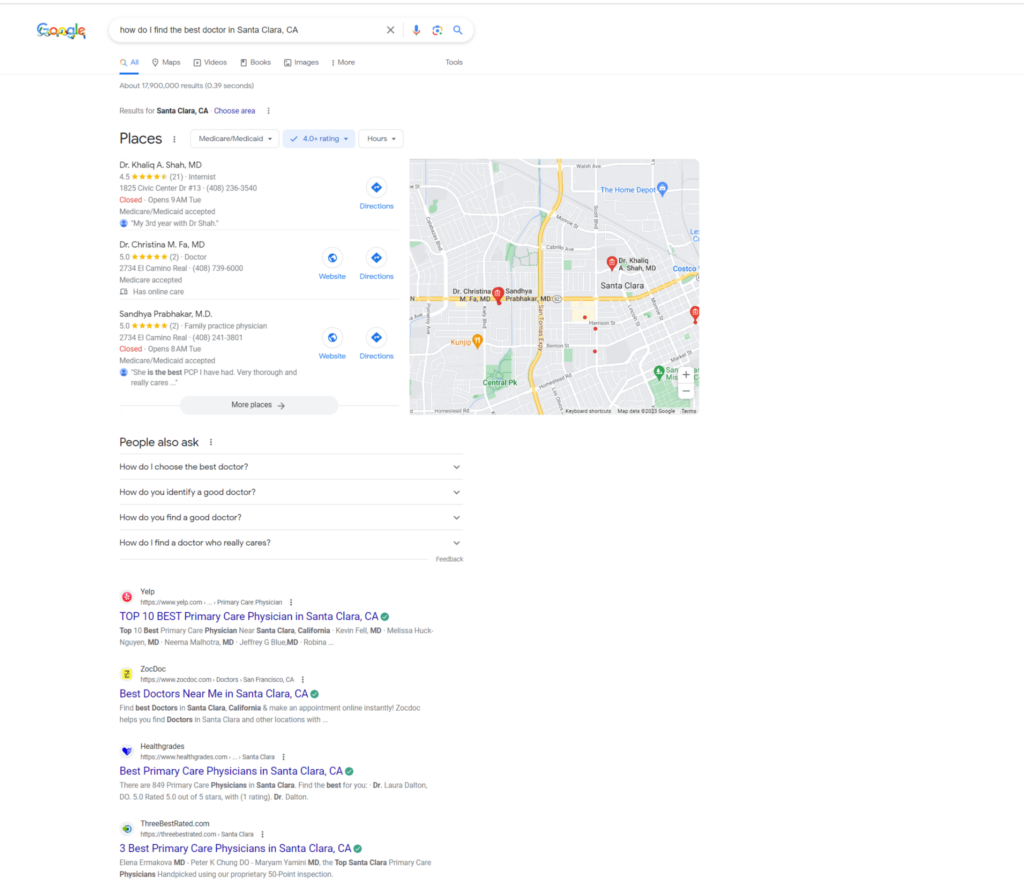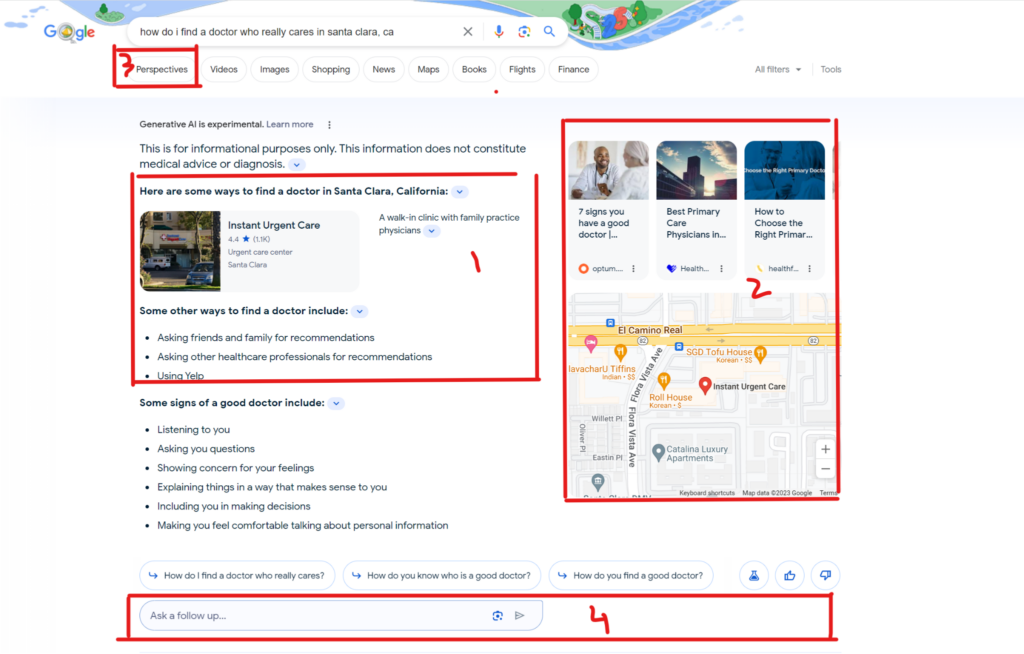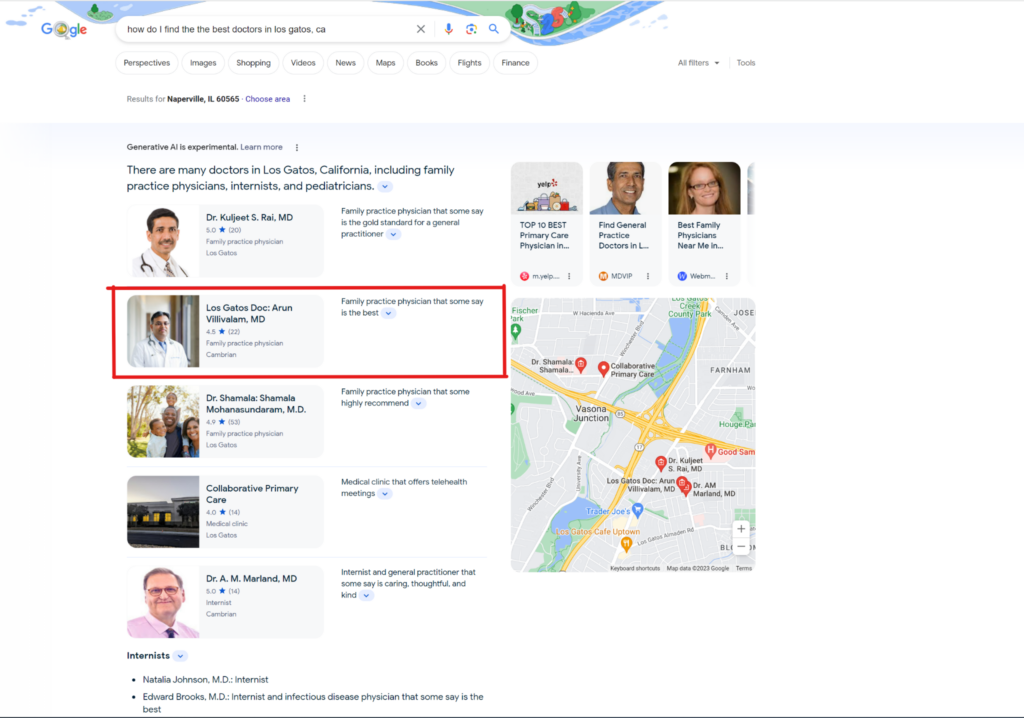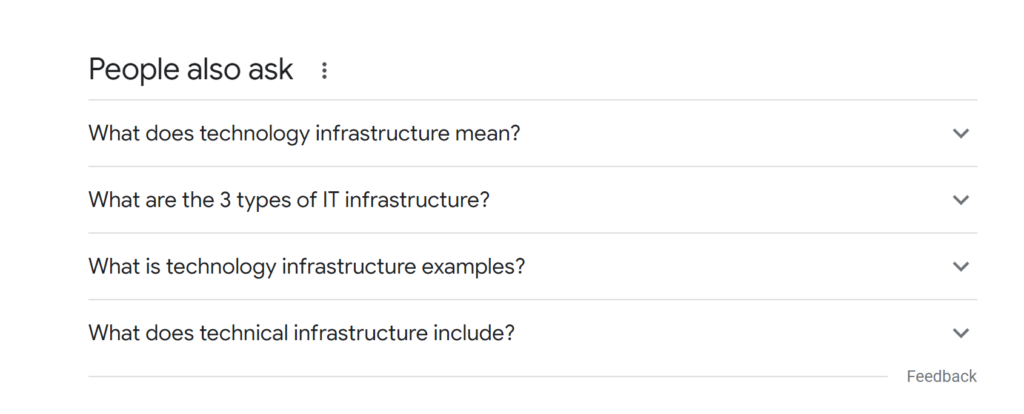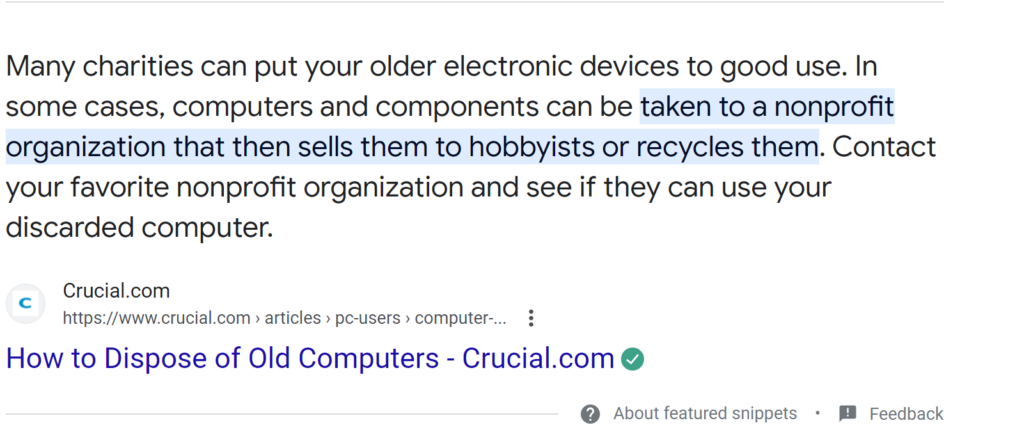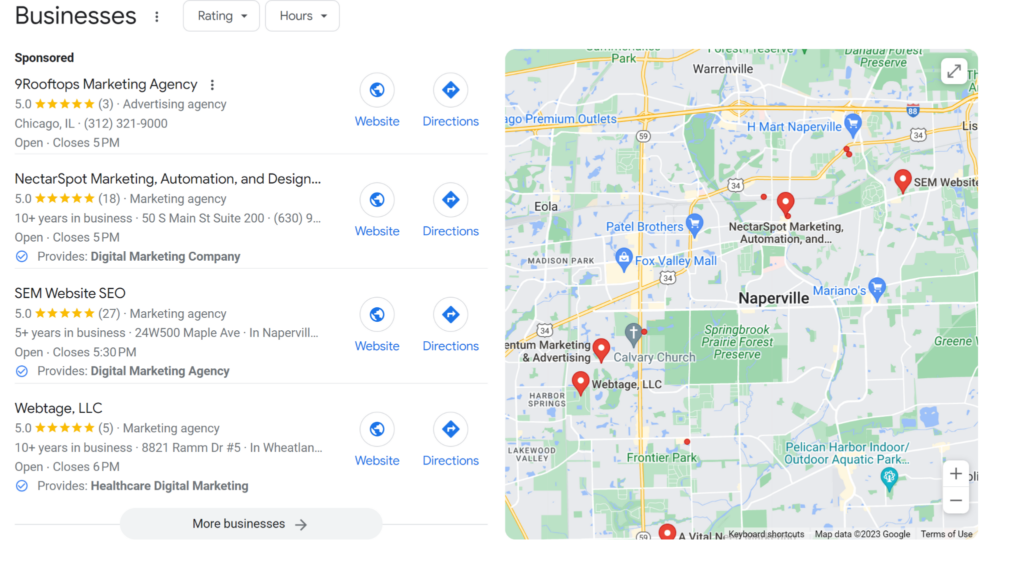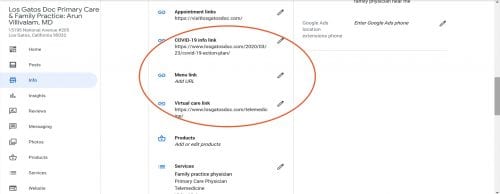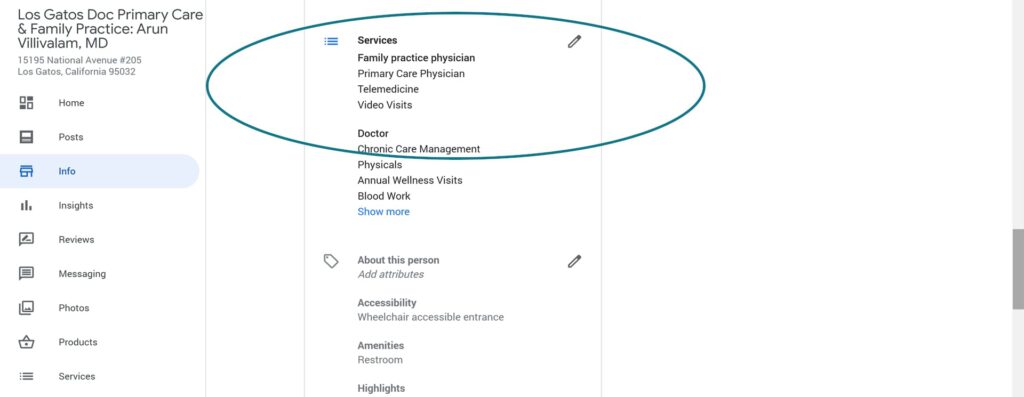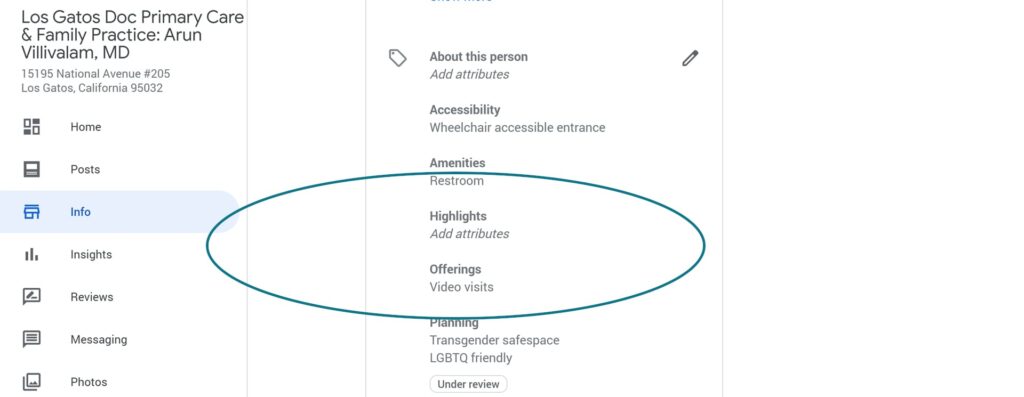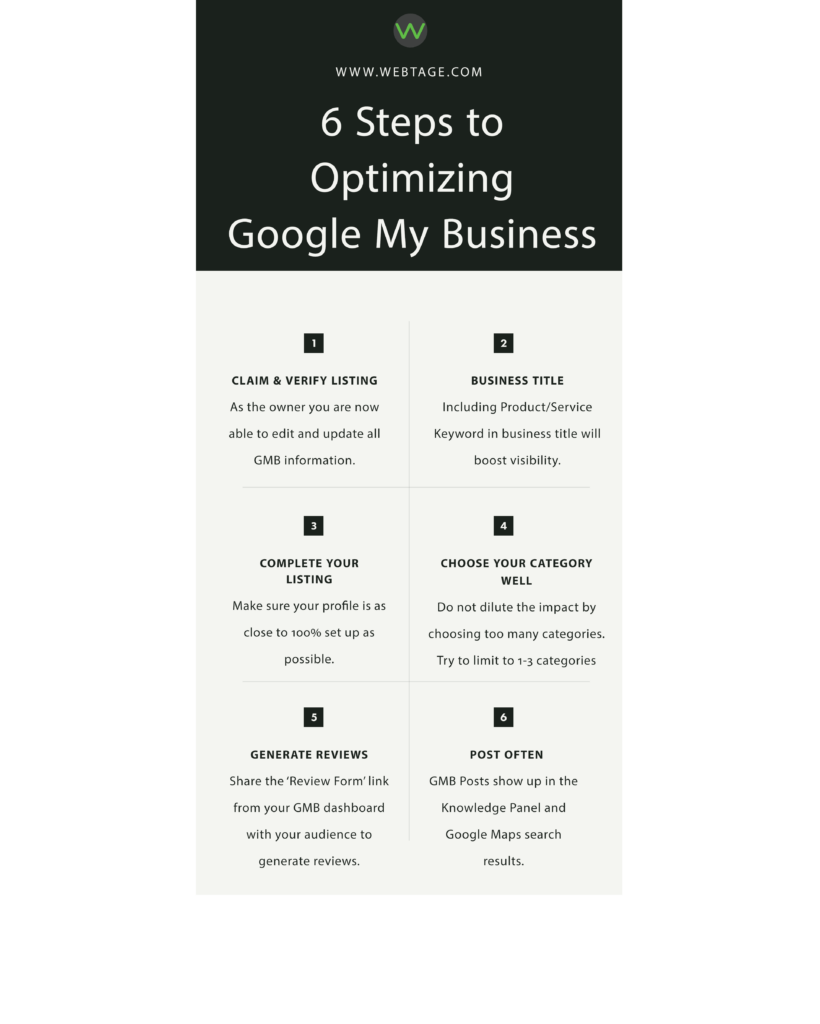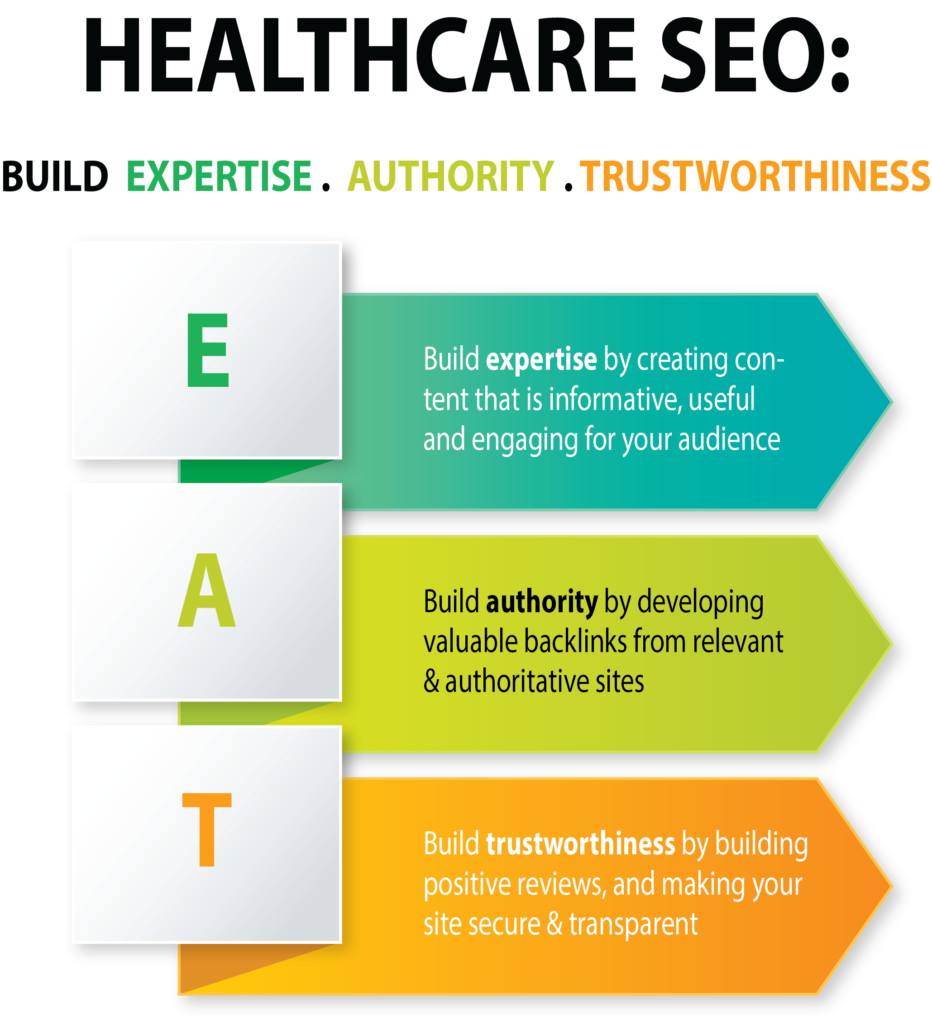
SEO is changing rapidly with evolution in generative AI, evolving algorithms & new search features that are propelling search engines, such as Google & Bing, to improve their search results in order to be more meaningful and personalized for their users. In such times, what should your SEO agency be doing to get you high page visibility?
While affordable SEO services are an important consideration for most businesses looking to boost their search visibility, you should look for an SEO agency that is ready to adapt to search changes in search engine optimization.
How will Generative AI Impact SEO in 2025?
AI Overviews –
AI Overviews, earlier known as search generative experiences or SGE, is one such big change due to search results being triggered by generative search.
We have now seen how Google Search produces an AI overview to provide an AI-generated summary at the top of the search page for many searches. For instance, if I type in ‘transactional or commercial search keywords and zero click searches’ and I see an AI overview right on top, which gives me a pretty good overview of the impact of AI Overview on transactional or commercial keywords:
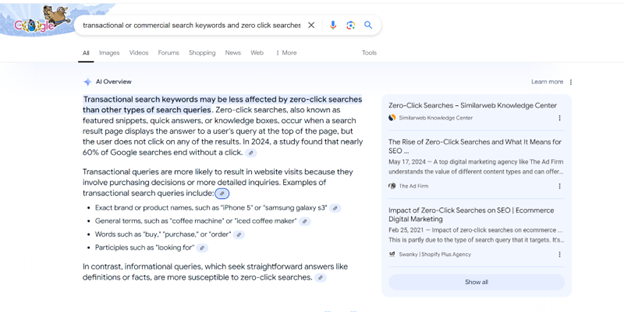
Notice how there are ‘links cards’ to the right which allow users to dig deeper into the topic. These are the websites that provide specific guidance on this topic, which is one piece of search real estate that websites can aim to occupy. More on this later.
An important note here; AI overview in its current form is new, but Google’s attempt to provide relevant and summarized information has existed for a long time, in the form of People Also Ask (PAA), featured snippets, and Knowledge Graphs.
These are all attempts to show the most relevant and useful information in search results and AI Overview is another feature that is propelled by Generative AI. One big difference between these other features and AI Overview is that AI Overview is getting SEO teams flustered over the potential zero click searches, which we will discuss next.
Zero click Searches –
A much-feared implication of AI overview in the SEO community is that people will reduce the number of clicks to websites in response to the AI-generated overview as the overview will provide a concise and useful answer to the user’s query, thereby reducing the need for open web clicks.
In reality, how has this panned out?
Well, a well-sourced study by Rand Fishkin of SparkToro has found that about 69.1% of Google searches resulted in zero clicks to the open web (meaning, web platforms beyond Google.com). For more information, caveats and data limitations, visit Spark Toro’s blog on zero click searches:
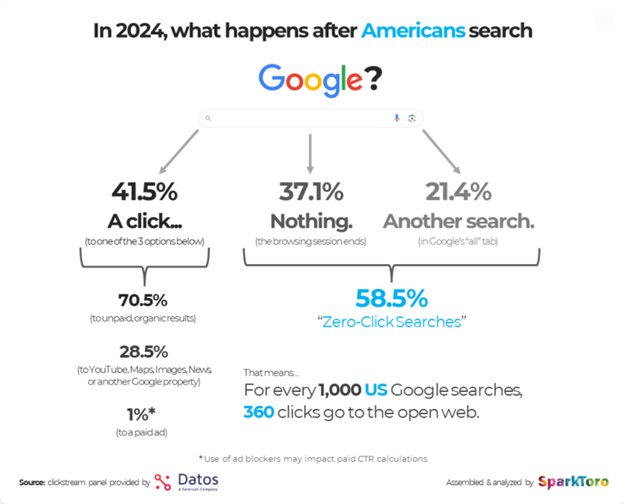
While this appears apocalyptic, in reality there are nuances that we as SEO experts need to be aware of.
- Zero click searches will likely affect top-funnel or informational / educational searches.
- For transactional or commercial searches, most will click to an open web click. This is because users have a purchase intent and would need to click to a website in order to initiate the purchase or gather more information.
- While AI Overview provides a summary that is intended to meet the search intent of the user, it also provides link cards which allow users to dig deeper into the topic by clicking through to the open web.
- Not all users will be satisfied with the AI overview and some will go into deeper searches. IN SparkToro’s study, we see 21.4% of users went on to another search.
- Finally, as SEO professionals, our aim should be to develop content that can get featured in search features other than organic (website) listing. Getting content impressions on AI overview, link cards, featured snippets, knowledge graphs or PAA boxes are all ways to improve brand recognition and increasing market share.
Should I Be Thinking of CHERP?
CHERP or chat experience results page/position is the new kid on the block. CHERP refers to getting mentions on chatbots, such as ChatGPT, Gemini, Co-Pilot or many of the gen AI chatbots on the market.
With regards to Google search, CHERP is synonymous with AI Overview. The question we are asking is how can we get mentioned in AI Overview (or other CHERPs) if our audience is searching for us?
Or, if we are not visible in the chat experience results page, where are we appearing in search results? We know that for local searches, 42% of searches click on a local pack result, which is the 3-pack Google Maps result. If you are a local business that is relying purely on organic SERP optimization, you have to consider that 50% of Google users click on their results within 9 seconds of searching.
Which means that if AI Overview, Local Service Ads, Paid Ads and Local 3-pack are dominating the top 50% of search real estate, how likely are users to click on your website link if it’s placed down below in the premium real estate of SERPs? Remember, only 9% of Google searchers make it to the bottom of the first page of the search results.
This means, for SEO in 2025, it is not enough to appear on page 1 of search results, At the very least, if you are a local business, you have to aim for the local 3-pack, which means optimizing your Google Business Profile (GBP) and aiming for the coveted top 3 positions in organic search results.
How to Navigate the New SEO Space in 2025?
As Generative AI changes the nature of search results and as Google updates its algorithms to be more meaningful and useful for searchers’ intent, what can an SEO agency do to play in the new landscape?
- A good foundational content strategy – A good current SEO base will be your defensive strategy in 2025. This means authoritative content that projects experience, expertise, authority, & trustworthiness (E.E.A.T.) should still be your foundational strategy! Good content allows helps you in multiple ways, including:
- Good content allows your article or multimedia to be indexed by search engines and drive high value traffic to your website or channel. At Webtage, we have seen at least one-third of our organic traffic generated through high-quality informational blogs that we create that bring together our E.E.A.T. as trustworthy & dependable digital marketing partners for our clients.
- Great content also helps build great backlinks from authoritative sources in your industry. In 2025, go beyond creating non contextualized backlinks from generic content sites. Instead, use great content that reflects principles of E.E.A.T. to reach out to high authority niche content sites. These backlinks appear to be naturally placed in a piece of content that is authoritative, trustworthy and denotes expertise, which makes these links much more valuable for your organic SERPs.
- The more often you create and publish good content on your website, the more frequently search bots will crawl your website and this will increase the chances of your content being shown on search results.
- Good content that is useful for your audience also increases the chances of higher engagement rates and lower bounce rates. The longer your visitors spend time on your website, the more likely your website will rank as an authoritative source of information and higher up in search results
- Content that is easy to digest, aligned to user intent, and displays first-person experiences – aka ranch-style SEO content– AI Overview, in particular and CHERPs in general, favors readability. Look at your readability score and summarize your page info into simple sentence structures followed by a clear call to action. This means presenting your information on a page in a clear and easy-to-understand language.
Second, instead of creating a skyscraper SEO strategy that relies on deep, in-depth pillar content, generative AI favors ranch style SEO that breaks down comprehensive pillar content into digestible bits of information that is mapped to varying search intent of a user’s journey.
Third, a critical component of ranch style SEO strategy is creating content that conveys first-hand experience, deep expertise, pointers, evaluation & refinement to make the output useful. This is exactly the kind of content that chatbots cannot spit out. And this is the type of content that you should aim to produce in 2025 that will likely get included in AI Overview, link cards, and other SERP features.
The days of spitting out large volumes of shallow content or AI-generated content is long gone. Even Google’s recent Useful Content update prioritizes websites with content that serve people’s needs and penalizes content that is produced primarily for ranking high on search engines.
- Aim for SERP Features – A related offense strategy, that is relevant not only for AI Overview but also other SERP features, such as featured snippets and PAA boxes is the creation of content mapped to user intent, careful selection of keywords, and developing high authority backlinks to appear as search feature.
To aim for featured snippets or PAA boxes, for instance, use a tool such as SEMrush’s keyword magic tool to filter most relevant keywords for your business that have associated featured snippets of PAA appearing in search results.
Once you have the keywords narrowed down, focus on creating content that precisely and concisely answers questions being asked in SERP features. AIOSEO suggests “includes simple elements like using question-based heading tags immediately followed by an answer containing the keyword in the question.” Other suggestions include answering those questions as short and concise paragraphs, creating a list of steps in the form of how-to tutorials, compressing large amounts of data as tables, and adding table of content to your posts and pages that allow for easy to generate list-style featured snippet or PAA answers.
Finally, think about adding schema markups, also known as structured data, to your webpages, especially those pages with frequently-asked questions, user-generatetd content, such as reviews, how-to content pieces and product and service details. These allow search engines to better understand your content and context to allow for better generation of SERP features.
SEO in 2025 will mean more competition and more work for Visibility, Traffic & ROI
While affordability remains an important factor in a company’s decision while selecting SEO vendors, remember in 2025, you want an SEO agency that is ready to unlearn many facets of SEO over the years. No longer a numbers game, the SEO of the future will in many ways support the foundations of good SEO along with the quality and relevance of your content that needs to be concise and easily digestible for your users.
Also important is creative ways of content creation that would increase the chances of getting featured on SERP features through list-style, clear, concise and super organized text.
This means your SEO agency has to stay ahead of the curve and explore creative ways to get you featured prominently on the highly-competitive real estate of search results.
If you are looking for a digital marketing partner with a relentless focus on excellence and a proven track record of success, Webtage is the trusted partner of choice for businesses seeking to dominate their digital landscape and achieve unparalleled growth through SEO. Contact us at 630-277-9521 today!





